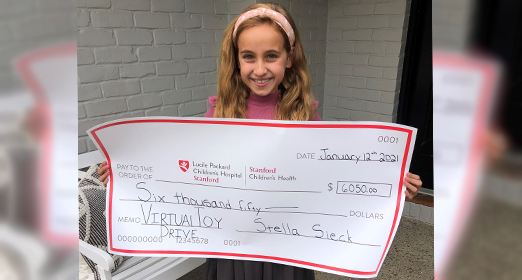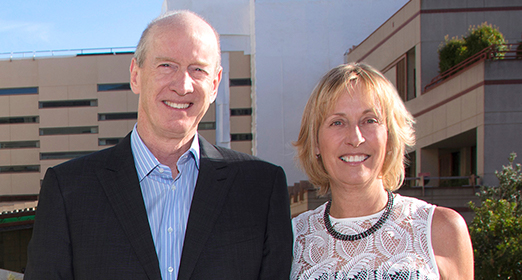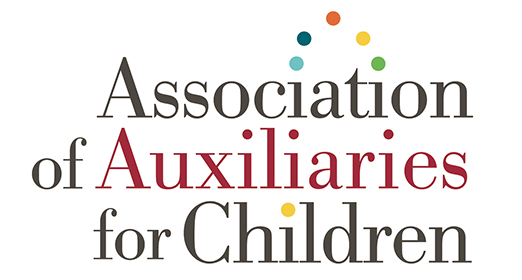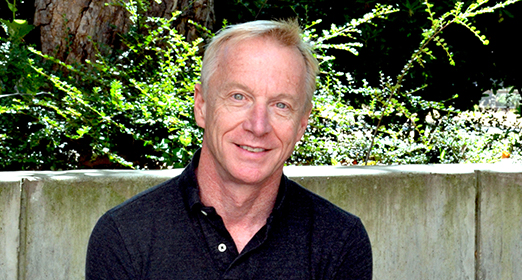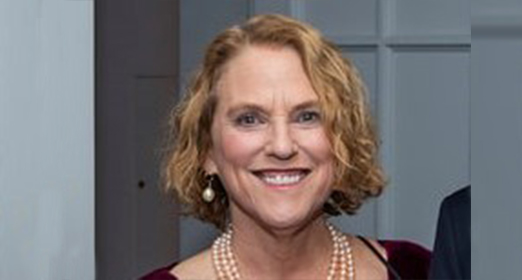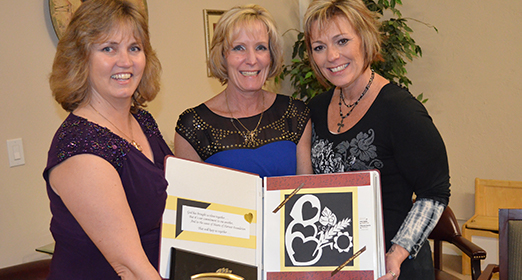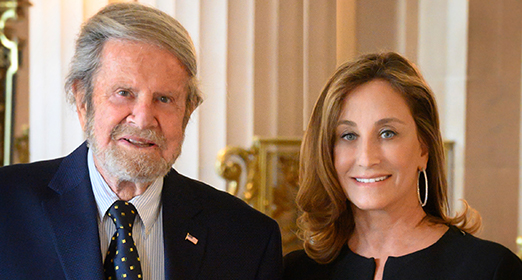Every day, donors like you make gifts of all sizes to build a healthier future for children and expectant mothers. Your support makes our hospital a special place for our patients and families, and we are tremendously grateful.
Champions Spread Joy During the Pandemic
Our community stepped up over the holidays to ensure that kids at our hospital could still enjoy being kids—despite restrictions put in place during the pandemic. To protect the health and safety of patients and their families, our hospital couldn’t accept toy donations. Companies such as Groq Inc. and Latham & Watkins LLP, schools including Saint Clement Catholic School, and other young philanthropists like 9-year-old Stella Sieck helped give a gift to every child who visited our hospital during the holiday season.
These Champions for Children each hosted a “Virtual Toy Drive,” raising monetary donations totaling more than $75,000 for the Recreational Therapy Fun Fund. The Child Life and Creative Arts team uses the Fun Fund to provide safe gifts for patients spending the holidays at our hospital, and year-round to continue the fun.
Frederick Gardner Cottrell Foundation Supports Innovation in Pediatrics
Medical devices designed for children lag behind adult technologies. To speed up pediatric medical device research and development, the Frederick Gardner Cottrell Foundation made its first gift to the University of California San Francisco-Stanford Pediatric Device Consortium (PDC).
The PDC brings together two top Bay Area children’s hospitals and universities to offer financial support, coaching, and connections to guide health innovators in taking pediatric devices to market—and to the children who need them most. The PDC is funded by the FDA but also relies on support from generous donors like the Frederick Gardner Cottrell Foundation.
Thanks to the $900,000 gift from the Frederick Gardner Cottrell Foundation, the PDC can support even more promising projects, bringing the most innovative technologies to our youngest, most vulnerable patients.
Elizabeth and Bruce Dunlevie Make Transformative Gift to Improve the Health of Mothers and Babies
Elizabeth and Bruce Dunlevie made an $80 million gift to launch a bold new clinical and research program that will transform the health of mothers and babies. The gift will help advance the science and practice of maternal-fetal medicine and fund new facilities to increase access to care.
“My journey with this hospital started as the mother of a child who needed life-saving care, and my family is forever grateful for Lucile Salter Packard’s vision and the care teams who ensured this hospital was here for us when we needed it,” says Elizabeth Dunlevie, who is board chair at the Lucile Packard Foundation for Children’s Health and a board member at Packard Children’s Hospital. “With this gift we want to help ensure access to Packard’s quality of care for all mothers and babies, across socioeconomic boundaries, now and in the future.”
The Dunlevies’ gift provides $50 million to launch a transformation of the 1st floor of the hospital’s West building. Over the next few years, the hospital will build a new state-of-the-art labor and delivery unit with 14 private suites. For mothers requiring hospitalization prior to delivery, the hospital will also build a dedicated maternity antepartum unit. The new units will enhance the patient experience while supporting the most complex maternal and fetal care.
Their gift also provides $30 million to further develop a world-class Maternal-Fetal Medicine program. With nearly two-thirds of the expectant mothers at Packard Children’s Hospital being high-risk, there is potential to do more for mothers with underlying conditions such as heart disease, cancer, epilepsy, and diabetes, and for pressing obstetrical issues including preterm labor, placenta accreta, hemorrhage, and cesarean delivery prevention.
“The impact of this incredible gift will be felt for generations, for the mothers and babies we help and, perhaps even more importantly, for those we will never have to treat because of new discoveries and cures made possible by this investment,” says Paul King, president and CEO of Packard Children’s Hospital and Stanford Children’s Health.
Auxiliaries Members Rise to the Challenge
The Auxiliaries Endowment provides more than $1 million to programs across Packard Children’s Hospital each year. In 2020, the Association of Auxiliaries Board put forth a challenge match for their endowment. The support was incredible with 70 Auxiliary members and friends making commitments totaling more than $523,000—and each dollar received a 10 percent match.
We are grateful to the following donors who made commitments and will receive recognition in the West building of our hospital: Marilyn and Arden Anderson, Patricia Barr, Patricia Parrish Davis, John Ryon Davis, Esther Ellis, Joyce Frankenberg (legacy member), Anne M. Fuller, Michael and Cathy Murphy Gagliasso, M. Jean Gorman, Angie Hollman, and Ethel and Paul Meyer.
AIM Youth Mental Health Helps Young People Get Treatment Faster
Learning that their teen has an eating disorder can be difficult and deeply troubling news for parents. Even more daunting for families is finding that they’re unable to get access to care when they need it due to high demand for care and long wait times at specialty centers, which have worsened during the pandemic.
AIM Youth Mental Health, a nonprofit dedicated to finding and funding promising youth mental health research, generously donated $50,000 to fund a research project at the Stanford University School of Medicine to speed delivery of care to more families by using telehealth.
“Just like we need the science to find vaccines for COVID-19, we need the science to find better treatments for mental illness,” says Susan Stilwell, founder of AIM Youth Mental Health. “While talking about young people’s mental health is important, it is not enough. We need to find the answers, and we have to fund the science—the research—that is so desperately needed right now.”
Led by James Lock, MD, PhD, the Eric Rothenberg, MD, Professor of Psychiatry and Pediatrics at the School of Medicine and director of the Comprehensive Eating Disorders Program at Packard Children’s Hospital, the project will evaluate online education and support for families while they await evaluation and treatment. According to Lock, preliminary data suggest that many families can make substantial progress using specialized online self-help tools.
“We hope to help families consider making changes at home that could improve their child’s eating problem even before they are seen by a doctor,” Lock says.
Thank you, AIM Youth Mental Health, for helping families to receive the care they need!
Moms Support Heart Patients and Their Families
Three moms whose babies were born with heart defects created the Hearts of Harvest Foundation (HOHF) more than 20 years ago.
“Our son Erikson’s care at Packard Children’s Hospital required us to temporarily be housed nearby, and we depended on family to help us with the financial challenges,” says HOHF Executive Director Becki Brown. “Soon I felt a strong calling in my heart to help other families who would go through the same agonizing experience, who didn’t have the extra financial resources needed when their child is critically ill.”
Since then, their support of our hospital’s Betty Irene Moore Children’s Heart Center and Cardiovascular Intensive Care Unit has helped countless families pay for transportation, lodging, and other essential needs.
Thank you, Hearts of Harvest Foundation, for your generous support!
Thankful for a Dedicated Auxiliaries Leader
We thank Nancy Larsson for her three years of volunteer service as president of the Association of Auxiliaries for Children, comprising nearly 1,000 members who span the Bay Area.
Nancy’s compassion, creativity, and positive attitude exemplify the core values that established the Auxiliaries more than 100 years ago. Whether serving as president, helping families in the hospital’s Treatment Center Waiting Room, or decorating patient rooms, Nancy’s tireless dedication as a volunteer is not just a passion, it is a way of life.
We are humbled by Nancy’s service and grateful for her efforts that have enhanced care for countless patients and their families.
Taube Philanthropies Endows Professorship in Global Health
Tad and Dianne Taube made a generous $2 million gift to establish the Taube Professorship in Global Health and Infectious Diseases at the Stanford University School of Medicine. It was matched with an additional $2 million from Andi Okamura and Jeff Chambers, chair of our hospital’s board of directors.
The first holder of this prestigious endowed professorship is pediatrician Yvonne “Bonnie” Maldonado, MD, one of the world’s top experts in infectious diseases.
“We are proud to establish this professorship to advance care for children everywhere and to advance science,” says Tad Taube, chairman of Taube Philanthropies. “Dianne and I are thrilled that Dr. Maldonado, a world-class researcher, will be the initial holder of the Taube endowed professorship.”
When the COVID-19 pandemic hit, Maldonado became a key player at the forefront of Stanford Medicine’s clinical response and research efforts.
“I am very honored to be the first holder of the Taube Professorship in Global Health and Infectious Diseases,” says Maldonado. “This support will help my team to further our mission of protecting kids around the world from illnesses—some of which are totally preventable and treatable. Although it’s especially challenging right now with COVID-19, the work we are doing to help others couldn’t be more fulfilling and exciting.”
The Taubes have made other generous gifts now totaling over $48 million, including naming the Tad and Dianne Taube Pavilion at Packard Children’s Hospital and funding research on pediatric cancer, youth addiction, concussions, and pediatric neurodegenerative disease.
The Dollingers Fund Research to Find Clues to a Rare Illness
When a child close to them showed a sudden, dramatic, and seemingly inexplicable behavior change, Tara and Dave Dollinger were surprised by how difficult it was to get a diagnosis to explain the abrupt transformation.
After struggling for 10 years to comprehend and treat this sudden-onset psychiatric disorder, the Dollingers’ loved one arrived at Stanford University and met Jennifer Frankovich, MD, MS, who identified the illness as pediatric acute-onset neuropsychiatric syndrome (PANS). A pioneer in PANS research, Frankovich co-founded the Immune Behavioral Health Clinic at Packard Children’s Hospital in 2012, the first clinic of its kind in the country. She and her team have gained a better understanding of PANS since then, but much remains unknown.
In response, Tara and Dave Dollinger donated $2.4 million to establish the Tara and Dave Dollinger PANS Biomarker Discovery Core, an expanded biorepository of data, blood, and tissue samples from patients at the Stanford PANS clinic. The PANS biorepository will be open to all basic science researchers—even those outside of Stanford—who will use these samples to build a molecular map of PANS. The data they collect will lead to better diagnostic and treatment strategies.
“We are thrilled about the opportunity to expand our clinical database and biorepository,” says Frankovich. “It will enable us to advance patient care and produce research to guide clinicians around the world as they care for patients with PANS and related disorders. Thank you to Tara and Dave for this significant investment in our work.”
This article originally appeared in the Summer 2021 issue of Packard Children’s News.
